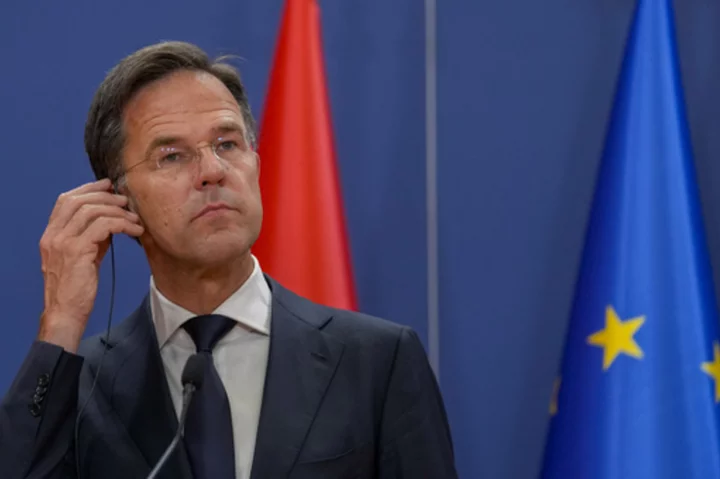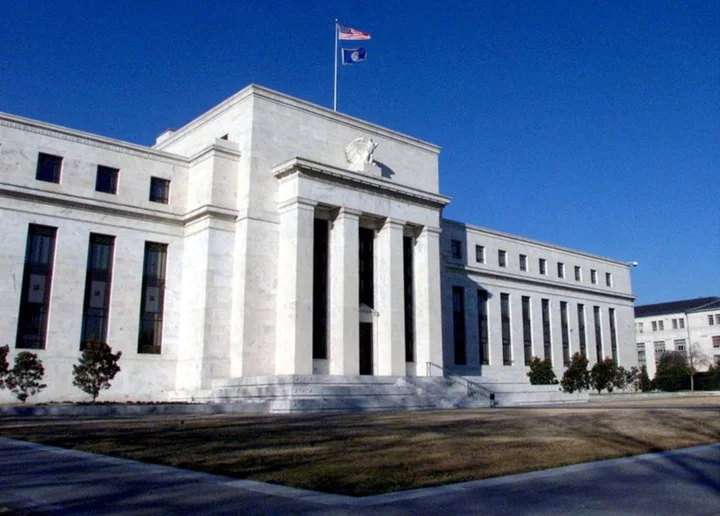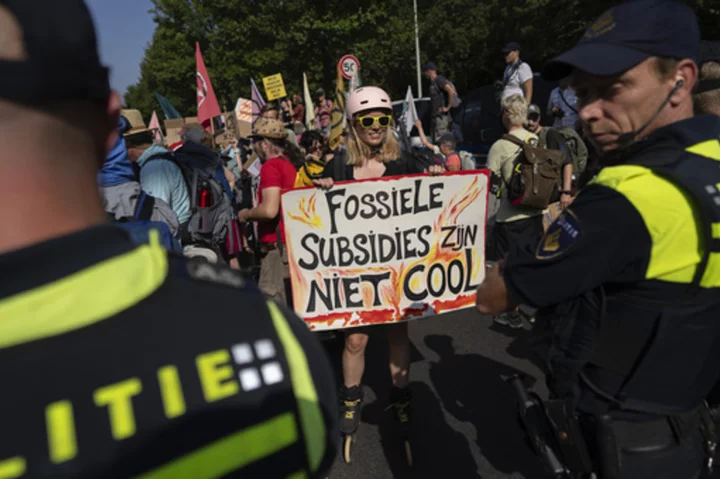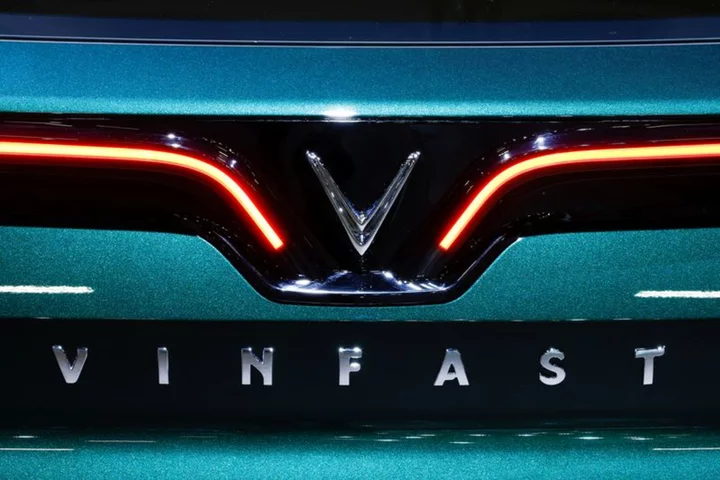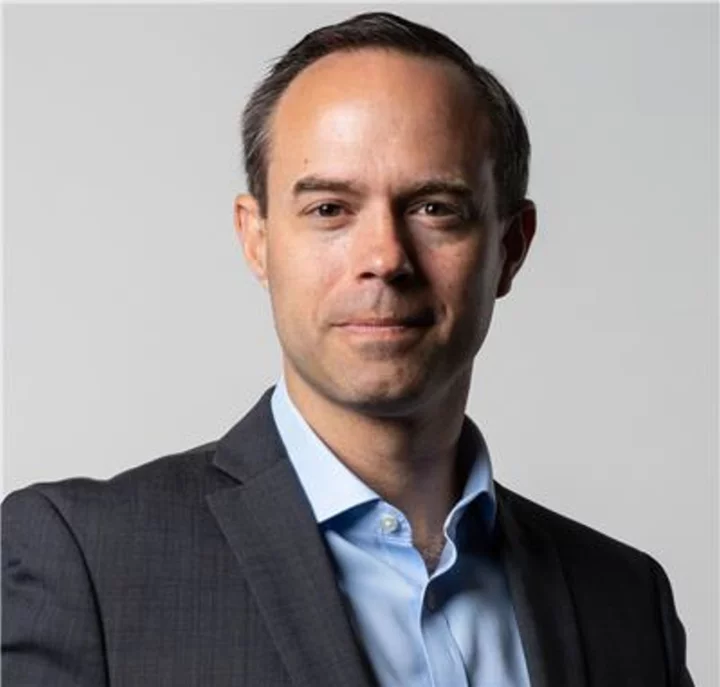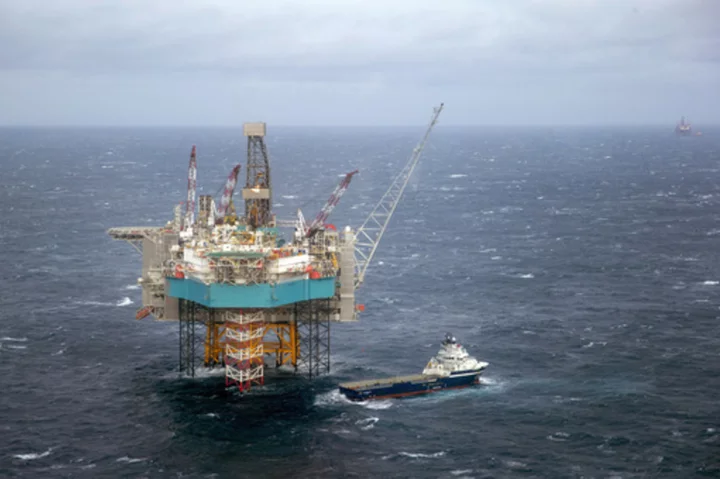PRISTINA, Kosovo (AP) — The leaders of the Netherlands and Luxembourg on Tuesday said that normalizing ties between Kosovo and Serbia would serve not only regional peace and stability but also their prospects of future integration into the European Union.
Prime Ministers Mark Rutte of the Netherlands and Xavier Bettel of Luxembourg were on a trip to Pristina after a visit to Belgrade on Monday.
They both called on Kosovo and Serbia to deescalate recent tensions that have threatened to push the Balkan region into instability as Europe faces Russia’s aggression in Ukraine.
“We are here to listen. And we are here to try to build these bridges which are sometimes between neighbors. Not that easy to build,” said Bettel, adding “so we have to avoid every new crisis.”
Rutte said that “I believe this is necessary not only for peace and stability in the region, but also for the prospects of further EU integration."
Tensions between the two countries flared anew in May after Kosovo police seized local municipal buildings in Serb-majority northern Kosovo to install ethnic Albanian mayors who were elected in an April election that Serbs overwhelmingly boycotted.
Violent clashes injured 30 international peacekeepers and more than 50 ethnic Serbs, stirring fears of a renewal of the 1998-99 conflict that left more than 10,000 people dead, mostly Kosovar Albanians.
The U.S. and the EU have pressed Serbia and Kosovo to take steps to lower tensions. Normalization of relations is the key condition for the two countries to move forward in their efforts to join the 27-nation bloc.
Just four months ago, Serbian President Aleksandar Vucic and Kosovar Prime Minister Albin Kurti gave their tacit approval to a EU-sponsored plan to end animosity and help improve their ties longer-term.
But the agreement unraveled almost immediately as both leaders appeared to renege on their commitments.
“I’m optimistic that good minds will prevail,” said Rutte, adding that deesclating the latest tension was the first step to take and immediately “try to get back to a process, a step-by-step process to make it again.”
Serbia and its former province Kosovo have been at odds for decades, with Belgrade refusing to recognize Kosovo’s 2008 declaration of independence.
“We as politicians, we take the decisions, but the populations are the ones who will take benefits or suffer if we take the wrong decisions,” Bettel said.
Washington and most EU nations have recognized Kosovo’s independence, while Russia and China have backed Serbia’s claim on the territory.
The 1998-99 war erupted when separatist ethnic Albanians rebelled against Serbia’s rule and Belgrade responded with a brutal crackdown. NATO's bombing campaign in 1999 forced Serbia to relinquish control, but the government in Belgrade has maintained that Kosovo remains part of Serbia.
——-
Llazar Semini reported from Tirana, Albania.

